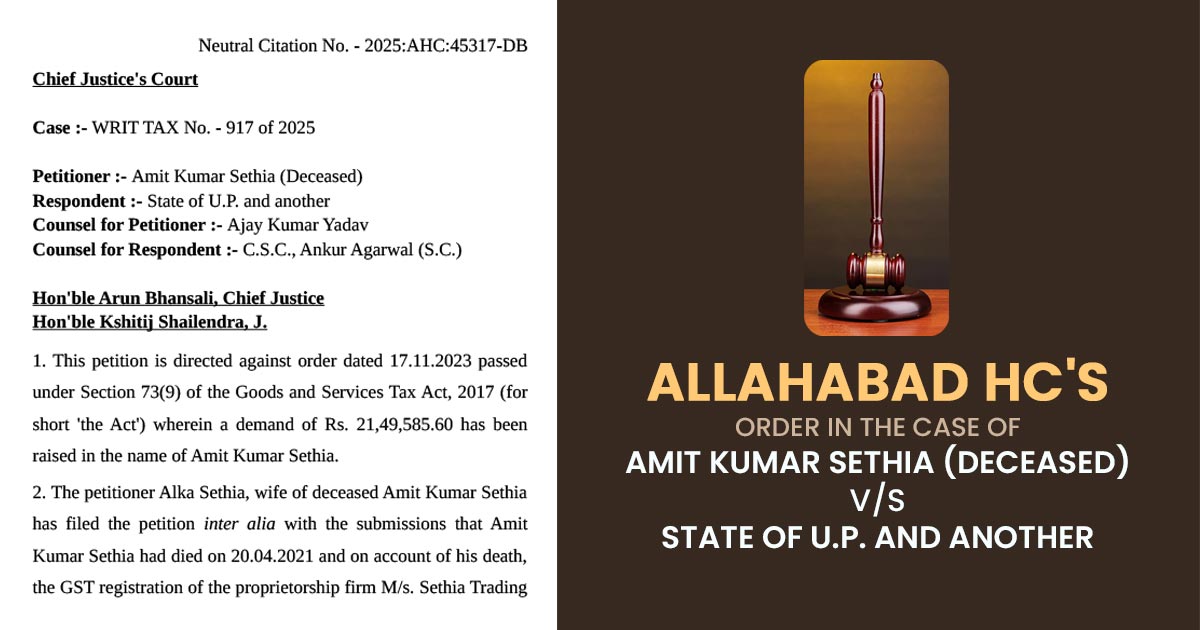
The Allahabad High Court has decided that Section 93 of the GST Act of 2017 does not allow tax authorities to charge taxes to someone who has passed away or to collect those taxes from their family or legal representatives.
Section 93 of the Goods and Services Tax Act, 2017, outlines the obligation to file tax in the event of the proprietor’s death. According to Section 93(1)(a), if the business continues after the proprietor’s death, the legal representative is responsible for filing any taxes, interest, or penalties owed under the Act.
Section 93(1)(b) furnishes that where the business is discontinued either before or after the death of the proprietor, “his legal representative shall be liable to pay, out of the estate of the deceased, to the extent to which the estate is capable of meeting the charge, the tax, interest, or penalty due from such person under this Act.”
The applicant died dated 20.04.2021, and the registration of his firm was cancelled wef 13.05.2021. A notice under section 73 of the GST Act on 13.09.2023 was issued in the name of the applicant. Even after the cancellation of the registration of the firm, the notice and the reminders were uploaded on the portal. The applicant’s heirs do not answer, and an order u/s 73 was passed dated 17.11.2023.
The applicant’s counsel contested the demand order, claiming that the department had been informed about the death of the applicant and no notice could have been issued in his name. It was claimed that these proceedings were void ab initio.
As per Section 93 of the Act, the bench of Chief Justice Arun Bhansali and Justice Kshitij Shailendra ruled that
“A perusal of the above provision would reveal that the same only deals with the liability to pay tax, interest, or penalty in a case where the business is continued after the death, by the legal representative or where the business is discontinued, however, the provision does not deal with the fact as to whether the determination at all can take place against a deceased person, and the said provision cannot and does not authorise the determination to be made against a dead person and recovery thereof from the legal representative.”
Read Also:- Allahabad HC: No Adverse Action Against Buyer If Seller Was GST-Registered at Time of Sale
The court ruled that issuing an SCN to the legal representative is a sine qua non, and a determination can just take place after asking for a response from the legal representative, since section 93 furnishes the proceedings against the legal representatives in the case of the continuance of the business after the death of the proprietor of the firm.
The court, as per that, set aside the determination made against the deceased person without issuing notice to legal representatives.
| Case Title | Amit Kumar Sethia (Deceased) V/S State of U.P. and another |
| Case No. | WRIT TAX No. – 917 of 2025 |
| Date | 02-04-2025 |
| Counsel For Appellant | Ajay Kumar Yadav |
| Counsel For Respondent | C.S.C., Ankur Agarwal (S.C.) |
| Allahabad High Court | Read Order |








